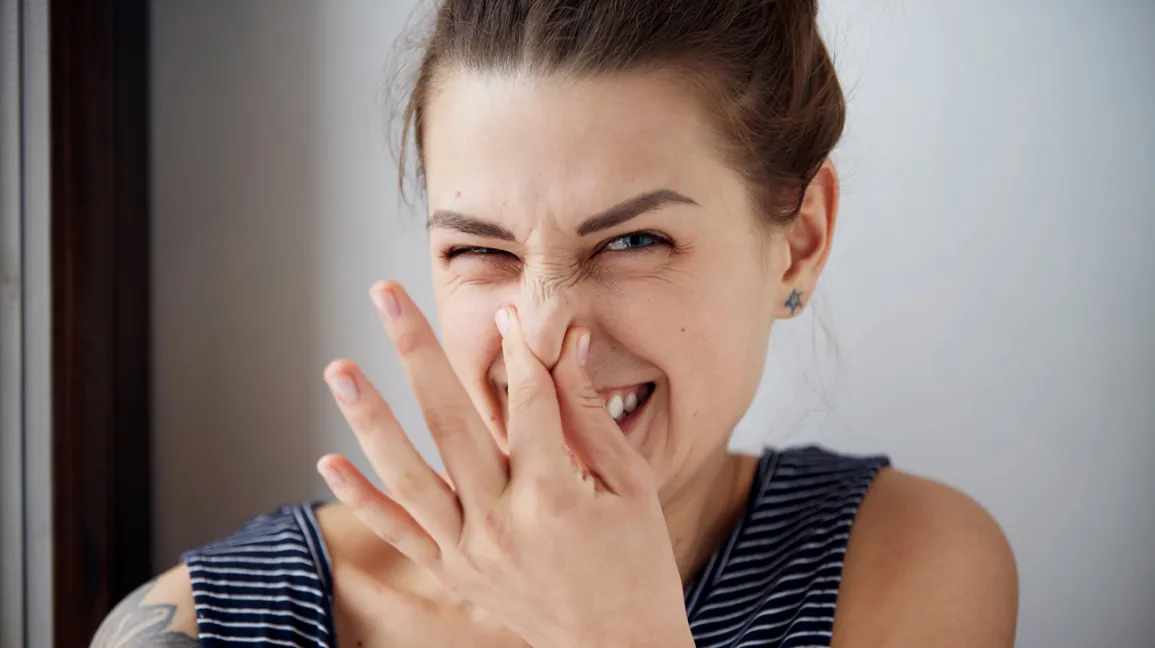You’ve just stepped out of a refreshing shower, lathered up with fragrant soap, maybe even used a fancy body scrub—but within an hour or two, that unwanted body odor creeps back in. If this sounds familiar, you’re not alone. Many people in the USA and UK deal with persistent body odor even after bathing, and it can be both confusing and frustrating.
We often assume that a daily shower should be enough to stay fresh. But body odor isn’t just about hygiene. It’s also about what’s happening inside your body, your skin microbiome, the products you’re using, and even what you eat. Understanding the deeper causes of post-shower body odor can help you find effective, long-term solutions—and feel more confident in your own skin.
Here’s a detailed look at what might be causing body odor even after bathing and what you can do about it.
1. Your Skin Microbiome Is Out of Balance
Your skin isn’t just skin—it’s a living ecosystem full of bacteria, fungi, and microbes. This community is known as the skin microbiome. When balanced, it helps protect you from infections and supports healthy skin. But when disrupted—by harsh soaps, antibacterial products, or overwashing—the good bacteria get wiped out, and odor-causing bacteria can thrive. These bacteria break down sweat and sebum into acids that cause that familiar, unpleasant smell.
What to do: Avoid antibacterial soaps unless prescribed. Use gentle, pH-balanced cleansers that support your skin barrier. Let your body breathe by choosing natural fabrics like cotton. Occasionally skipping a day of deodorant or giving your skin a break can help your microbiome rebalance.
2. You’re Using the Wrong Soap or Body Wash
Not all soaps are created equal. Some strip your skin of natural oils, leaving it dry and vulnerable to bacterial overgrowth. Others might not be effective enough to break down odor-causing residue, especially in areas where sweat collects. Fragrance-heavy soaps can also mask odor temporarily without actually addressing its root.
What to do: Look for body washes with tea tree oil, eucalyptus, or witch hazel, which have natural antibacterial properties. Choose sulfate-free formulas and avoid anything with strong synthetic fragrances if you have sensitive skin.
3. Your Sweat Glands Are Overactive
Some people naturally produce more sweat due to genetics, stress, or hormonal changes. This is especially common in individuals with a condition called primary hyperhidrosis, which causes excessive sweating even in cool temperatures. More sweat means more food for bacteria—and more odor. If you’re sweating heavily within hours of showering, especially on your underarms, feet, or back, this could be why you smell even after a bath.
What to do: Use a clinical-strength antiperspirant at night when your sweat glands are less active—it helps block sweat more effectively by the next day. If that doesn’t work, speak to a dermatologist about options like prescription antiperspirants, Botox injections, or iontophoresis.
4. Hormonal Imbalances
Fluctuations in hormones can change how your body smells. During puberty, pregnancy, menopause, or with certain health conditions like PCOS or thyroid disorders, your body may release more sweat or different chemical compounds that alter your natural scent. These hormonal changes can cause more intense body odor, even with regular hygiene.
What to do: Keep a symptom journal if you notice that odor worsens around your cycle or during hormonal shifts. Support your hormones with balanced meals, quality sleep, and stress management. Consult your healthcare provider for hormone testing if other symptoms like fatigue, mood swings, or irregular periods are present.
5. Diet and Digestion Issues
Yes, what you eat can affect how you smell. Foods like garlic, onions, red meat, curry, alcohol, and processed foods can all contribute to stronger body odor. These foods release sulfur compounds and other chemicals that are excreted through sweat. Poor digestion or gut health imbalances can also play a role, allowing toxins to build up in the body and come out through your pores.
What to do: Cut back on strong-smelling or highly processed foods and see if there’s an improvement. Support your gut with fiber, probiotics, and plenty of water. A food sensitivity test or gut health assessment may be helpful if you’re dealing with bloating or irregular digestion alongside body odor.
6. Synthetic Clothing Traps Bacteria
Even if you’re clean, your clothes might not be. Synthetic fabrics like polyester and nylon are notorious for trapping sweat and odor. They don’t breathe as well as natural fibers, which means bacteria can thrive and multiply on the fabric—even after washing. If you’re putting on the same workout top or undergarments that haven’t fully aired out, you might be reintroducing odor right after your shower.
What to do: Switch to breathable fabrics like cotton, bamboo, or moisture-wicking blends. Wash sweaty clothes immediately and avoid re-wearing anything that smells, even if it looks clean. Add a splash of vinegar or baking soda to your laundry to break down odor-causing bacteria.
7. Underlying Medical Conditions
Sometimes, persistent body odor is a symptom of an underlying health condition. Conditions like trimethylaminuria (a rare metabolic disorder), diabetes, kidney or liver issues, or infections can cause unusual or strong smells, even with excellent hygiene. If your odor suddenly changes or becomes fishy, metallic, or sweet, it’s worth checking in with a doctor.
What to do: If body odor is accompanied by other unexplained symptoms—like fatigue, weight loss, skin changes, or digestive issues—speak to your healthcare provider. A basic checkup and blood tests can rule out or diagnose underlying problems early.
8. You’re Only Washing Once a Day (or Not Targeting the Right Spots)
Bathing once a day is generally fine, but if you’re prone to body odor, once may not be enough—especially after workouts, hot days, or stressful events. Also, simply standing under water or washing quickly may not be sufficient to remove sweat and bacteria buildup from high-risk areas like the underarms, groin, and feet.
What to do: Focus on the areas that produce the most sweat—underarms, feet, groin, and scalp. Use a gentle exfoliating cloth or loofah a few times a week to slough off dead skin. Dry off thoroughly, as bacteria thrive in damp environments. Consider a midday rinse if you’ve been extra active.
9. Stress and Anxiety
Emotional stress triggers a different type of sweat called apocrine sweat, which is thicker and contains more protein. This type of sweat is found in your underarms and groin area and is more easily broken down by bacteria, which is why it smells stronger. If you’re constantly stressed, anxious, or dealing with chronic tension, your body may be producing more of this odor-triggering sweat.
What to do: Incorporate stress-reducing habits like deep breathing, mindfulness, journaling, or light exercise into your daily routine. Consider stress-reducing supplements or therapy if anxiety is a consistent challenge.
10. Your Deodorant Isn’t Working (or Making It Worse)
Deodorants and antiperspirants aren’t one-size-fits-all. Some may stop odor but not sweat, while others may cause buildup that leads to irritation or clogged pores. Certain formulas might react with your body chemistry or leave residue that makes things worse over time.
What to do: Try switching to a different formula—some people respond better to natural deodorants, while others need clinical-strength options. You may also benefit from detoxing your underarms by gently exfoliating or using a clay mask to remove residue and rebalance the area.
Final Thoughts
Persistent body odor after bathing isn’t just about being “clean” or not. It’s a complex issue involving your skin, lifestyle, hormones, diet, and stress levels. Once you identify the root cause, the solutions often become simple and effective. The key is paying attention to what your body is trying to tell you—and making adjustments that go beyond just soaps and sprays.
Your body deserves to feel fresh, balanced, and comfortable. With the right habits and awareness, that’s fully within reach.





